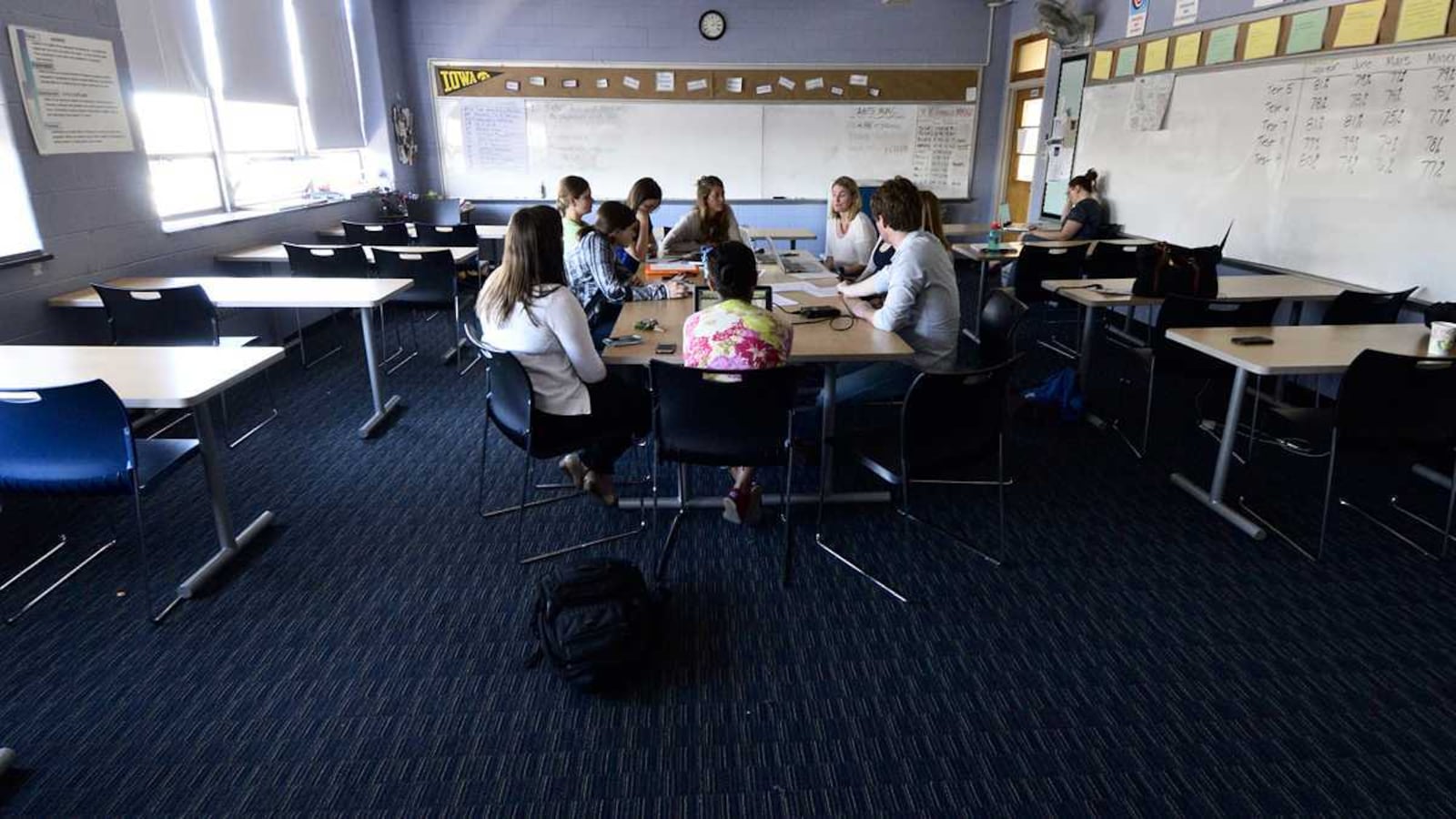This article was originally published in The Notebook. In August 2020, The Notebook became Chalkbeat Philadelphia.
School counselor Pam Turner-Bunyon had been warned: This new, incoming student was prone to very erratic behavior.
"When he first came to us, he ran out of the building the first day — the very first day. Instead of coming in, he ran," she said.
Turner-Bunyon learned what happened and immediately dashed out into the crime-prone streets that surround the school.
"I found out he was running, so I went and chased him down and coaxed him back in, and we worked to develop safety places in the building," she said.
Turner-Bunyon has 15 years under her belt as counselor at Feltonville Intermediate, a Philadelphia public school serving grades 3-5. Most of its students come from low-income families.
Years ago, in the same situation, she would have reacted differently — maybe gotten angry and tried to lecture the student sternly about his misbehavior.
But that was before she learned about "trauma-informed" education care.
"It’s saying, ‘What can we do to intentionally work with children … and minimize the stress so that children are able to think and function in school,’" she said. "And not saying, ‘Oh, you’re just an angry kid, you need to do X, Y and Z.’"
For Turner-Bunyon, that means first recognizing the often profound weights that many students carry with them through their lives and helping to ease them with individualized attention.
"And so for him, it was trying to figure out a safe spot that he could go to that he could feel alone and that he could escape," she said. "And one of the things that we found out really quickly, he and I did, is that he really likes to read."
But what works for one child might not work for another. She has many students who live in the depths of poverty. Others have family members who have recently suffered sudden, violent deaths, and still others have come across the bodies of close relations who have committed suicide.
Like the student who sought refuge in running, many of these students struggle to focus in the classroom, and their stressors can manifest in often unruly ways.
"A kid will be throwing a desk and throwing a chair, and I will have to go up and get them," she said. "It’s real crisis stuff."
But over time, Turner-Bunyon has become adept at quickly de-escalating these situations — often by engaging students’ senses.
"I have students who come in who, for example, need hugs in the morning. So I give them hugs," she said. "And you can see that, totally, just that hug changes their ability to be able to function."
For others, the answer can be plastic — as in the stock of empty water bottles she keeps in her office.
"We play games to make them as small as you possibly can," she said. "And the sound and the physically breaking them apart help to calm kids down."

